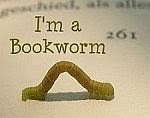Just a reminder that a wedding is a celebration!
HT:Kelli
Saturday, July 25, 2009
Thursday, July 23, 2009
Hymn of the Week- Leaning On The Everlasting Arms
A couple of years ago we watched the excellent movie "United 93". The movie takes place on September 11, 2001, and it's director tried to stay as completely faithful to the events regarding that flight as possible, down to the exact words of the various passengers, as recorded or recollected by their relatives. As you may remember, United flight 93 was the airliner on which the passengers chose to attack the terrorists who had hijacked the plane, resulting in it crashing in a field in Pennsylvania rather than into Washington, D.C.
One of the most memorable scenes in the movie involved a very young woman calling home on her cell phone. She had just comprehended that the plane was destined to crash, one way or another, and that she was facing certain death. At her parent's home, her stepmother answered the phone. The young woman, in a panicked voice, explained to her stepmother the circumstances she was in. The older woman had already seen news coverage of the other three planes crashing, and quickly understood the situation. She drew a deep breath, and, in the calmest of voices, began to guide the younger woman through her final moments. They expressed their love for each other. Then, the stepmother, seeking to calm the panicked girl, said something like,"I have my arms around you. Do you feel them?" With that, the demeanor of the younger woman changed. She relaxed. "Yes, I feel them," she replied.
Ever since then, that scene has come to mind when we use the hymn "Leaning On The Everlasting Arms" in a worship service. When the refrain lyrics were written by A.J. Showalter in 1887, he was inspired by Deuteronomy 33:26-27: "There is none like the God of Jerusalem- he descends from the heavens in majestic splendor to help you. The eternal God is your Refuge, and underneath are the everlasting arms." Showalter had just received word from two different friends on the same day, that their young wives had died. In writing his condolences, he had added this verse in his notes to them.
Showalter then wrote to another friend, Elisha Hoffman. Hoffman was an Evangelical Presbyterian pastor in the Cincinnati area, and associated with that denomination's publishing house. Showalter suggested that Hoffman compose a hymn based on his suggestions about this verse. Though both of these men would be considered amateur hymn writers, between them they wrote what has become a favorite standard hymn. (Hoffman also wrote another popular hymn, "I Must Tell Jesus".)
Though the tune is rousing and joyous, the reassuring message that was illustrated by the scene in "United 93" is there. Believers can "rest" in the finished work of Jesus Christ on their behalf. In times of struggle, we can relax into the everlasting arms of our Lord.
What a fellowship, what a joy divine,
Leaning on the everlasting arms;
What a blessedness, what a peace is mine,
Leaning on the everlasting arms.
refrain:
Leaning, leaning,
Safe and secure from all alarms;
Leaning, leaning,
Leaning on the everlasting arms.
O, how sweet to walk in this pilgrim way,
Leaning on the everlasting arms;
O, how bright the path grows from day to day,
Leaning on the everlasting arms.
(refrain)
What have I to dread, what have I to fear,
Leaning on the everlasting arms?
I have blessed peace with my Lord so near,
Leaning on the everlasting arms.
(refrain)
Elisha Albright Hoffman (1839-1929)
One of the most memorable scenes in the movie involved a very young woman calling home on her cell phone. She had just comprehended that the plane was destined to crash, one way or another, and that she was facing certain death. At her parent's home, her stepmother answered the phone. The young woman, in a panicked voice, explained to her stepmother the circumstances she was in. The older woman had already seen news coverage of the other three planes crashing, and quickly understood the situation. She drew a deep breath, and, in the calmest of voices, began to guide the younger woman through her final moments. They expressed their love for each other. Then, the stepmother, seeking to calm the panicked girl, said something like,"I have my arms around you. Do you feel them?" With that, the demeanor of the younger woman changed. She relaxed. "Yes, I feel them," she replied.
Ever since then, that scene has come to mind when we use the hymn "Leaning On The Everlasting Arms" in a worship service. When the refrain lyrics were written by A.J. Showalter in 1887, he was inspired by Deuteronomy 33:26-27: "There is none like the God of Jerusalem- he descends from the heavens in majestic splendor to help you. The eternal God is your Refuge, and underneath are the everlasting arms." Showalter had just received word from two different friends on the same day, that their young wives had died. In writing his condolences, he had added this verse in his notes to them.
Showalter then wrote to another friend, Elisha Hoffman. Hoffman was an Evangelical Presbyterian pastor in the Cincinnati area, and associated with that denomination's publishing house. Showalter suggested that Hoffman compose a hymn based on his suggestions about this verse. Though both of these men would be considered amateur hymn writers, between them they wrote what has become a favorite standard hymn. (Hoffman also wrote another popular hymn, "I Must Tell Jesus".)
Though the tune is rousing and joyous, the reassuring message that was illustrated by the scene in "United 93" is there. Believers can "rest" in the finished work of Jesus Christ on their behalf. In times of struggle, we can relax into the everlasting arms of our Lord.
What a fellowship, what a joy divine,
Leaning on the everlasting arms;
What a blessedness, what a peace is mine,
Leaning on the everlasting arms.
refrain:
Leaning, leaning,
Safe and secure from all alarms;
Leaning, leaning,
Leaning on the everlasting arms.
O, how sweet to walk in this pilgrim way,
Leaning on the everlasting arms;
O, how bright the path grows from day to day,
Leaning on the everlasting arms.
(refrain)
What have I to dread, what have I to fear,
Leaning on the everlasting arms?
I have blessed peace with my Lord so near,
Leaning on the everlasting arms.
(refrain)
Elisha Albright Hoffman (1839-1929)
Monday, July 20, 2009
Forty Years Ago
Here's what I remember of July 20, 1969:
My parents invited my grandparents over for the evening to watch the moon landing, because we had a better TV. My grandfather came reluctantly. It was always his contention that the space program was a waste of the tax-payer's money. However, my grandmother talked him into coming.
We all, parents, grandparents, sisters, and myself, gathered in the family room. Of course, watching space launches and capsule reentries always meant waiting through a lot of NASA rigamarole that I didn't understand, and there was a long lead-up to the actual event. We filled the time with hopping up and down to make popcorn and other snacks. Eventually, we could see the actual live footage from the lunar module itself as it eased down, down, down to the surface of the brightly sunlit, but lifeless, moon. Just thinking about the transmission of the images, coming from 3,000+ miles away, through the airless void of space and the layers of the atmosphere I had learned about in school, had us marveling and exclaiming to each other.
We perhaps had not realized we were holding our breath until the module was safely down, unscathed. It could have crashed, but it didn't. The video transmission could have fritzed out, but it didn't.
And then, a fuzzy image of a bulky figure could be seen descending slowly down a little ladder. He put his foot down, causing a small puff of dust, and his muffled voice, coming from the moon, said, "That's one small step for man, one giant leap for mankind."
I remember that the astronauts behaved a little like kids as they muddled about in their awkward suits on the surface of the moon. I remember recognizing the joy and excitement in their voices, seeing them playfully bound around in the lower gravity. They made footprints in the moon dust, just as I did in winter when there was a fresh snow. I remember thinking that it was both exciting and sad that their footprints would never go away, never be muted by rain or wind.
At one point, late in the evening, I got up from where I was sitting cross legged on the floor, and went out the door into our backyard. I looked up at the moon in the sky. Alone, I stood there, staring, knowing that the distance was too great, but wishing none-the-less that I could somehow see something on the face of the moon. Somewhere up there, gamboling like children, were two men who were the very first humans to set foot on any heavenly orb but our own. I stood there a long time.
It was a long evening, and, unlike the adults in the room, I was less concerned about lifting off the moon and reconnecting for the journey home. The dangers were a little beyond me.
I went to bed thinking about the serious, scientific astronauts frisking like children. I thought about the footprints. Though I understood it but dimly, the universe had shifted just a bit that night.
My parents invited my grandparents over for the evening to watch the moon landing, because we had a better TV. My grandfather came reluctantly. It was always his contention that the space program was a waste of the tax-payer's money. However, my grandmother talked him into coming.
We all, parents, grandparents, sisters, and myself, gathered in the family room. Of course, watching space launches and capsule reentries always meant waiting through a lot of NASA rigamarole that I didn't understand, and there was a long lead-up to the actual event. We filled the time with hopping up and down to make popcorn and other snacks. Eventually, we could see the actual live footage from the lunar module itself as it eased down, down, down to the surface of the brightly sunlit, but lifeless, moon. Just thinking about the transmission of the images, coming from 3,000+ miles away, through the airless void of space and the layers of the atmosphere I had learned about in school, had us marveling and exclaiming to each other.
We perhaps had not realized we were holding our breath until the module was safely down, unscathed. It could have crashed, but it didn't. The video transmission could have fritzed out, but it didn't.
And then, a fuzzy image of a bulky figure could be seen descending slowly down a little ladder. He put his foot down, causing a small puff of dust, and his muffled voice, coming from the moon, said, "That's one small step for man, one giant leap for mankind."
I remember that the astronauts behaved a little like kids as they muddled about in their awkward suits on the surface of the moon. I remember recognizing the joy and excitement in their voices, seeing them playfully bound around in the lower gravity. They made footprints in the moon dust, just as I did in winter when there was a fresh snow. I remember thinking that it was both exciting and sad that their footprints would never go away, never be muted by rain or wind.
At one point, late in the evening, I got up from where I was sitting cross legged on the floor, and went out the door into our backyard. I looked up at the moon in the sky. Alone, I stood there, staring, knowing that the distance was too great, but wishing none-the-less that I could somehow see something on the face of the moon. Somewhere up there, gamboling like children, were two men who were the very first humans to set foot on any heavenly orb but our own. I stood there a long time.
It was a long evening, and, unlike the adults in the room, I was less concerned about lifting off the moon and reconnecting for the journey home. The dangers were a little beyond me.
I went to bed thinking about the serious, scientific astronauts frisking like children. I thought about the footprints. Though I understood it but dimly, the universe had shifted just a bit that night.
Friday, July 17, 2009
An Older Chapter in the "Worship Wars"
"I Sing the Mighty Power of God"
"O God, Our Help in Ages Past"
"Joy to the World, The Lord Has Come"
"Alas, And Did My Saviour Bleed"
"When I Survey the Wondrous Cross"
"At the Cross"
"We're Marching to Zion"
What do all these wonderful old traditional hymns have in common? They are all written by an eighteenth century English pastor named Isaac Watts. This is but a very abbreviated list. If you have any familiarity with traditional hymnody, you would recognize dozens of his contributions to the world of Christian worship!
Though we think of these hymns as traditional, or tried and true, songs of the church, it might surprise you to know that Watts was a cutting-edge, and much maligned, creator of contemporary worship in his day and time. Here is a short biographical video produced by Mars Hill Church of Seattle, that gives you a sense of his role in the history of Christian music.
"O God, Our Help in Ages Past"
"Joy to the World, The Lord Has Come"
"Alas, And Did My Saviour Bleed"
"When I Survey the Wondrous Cross"
"At the Cross"
"We're Marching to Zion"
What do all these wonderful old traditional hymns have in common? They are all written by an eighteenth century English pastor named Isaac Watts. This is but a very abbreviated list. If you have any familiarity with traditional hymnody, you would recognize dozens of his contributions to the world of Christian worship!
Though we think of these hymns as traditional, or tried and true, songs of the church, it might surprise you to know that Watts was a cutting-edge, and much maligned, creator of contemporary worship in his day and time. Here is a short biographical video produced by Mars Hill Church of Seattle, that gives you a sense of his role in the history of Christian music.
Labels:
congregational life,
hymn of the week,
musings,
worship
Saturday, July 4, 2009
Subscribe to:
Posts (Atom)














